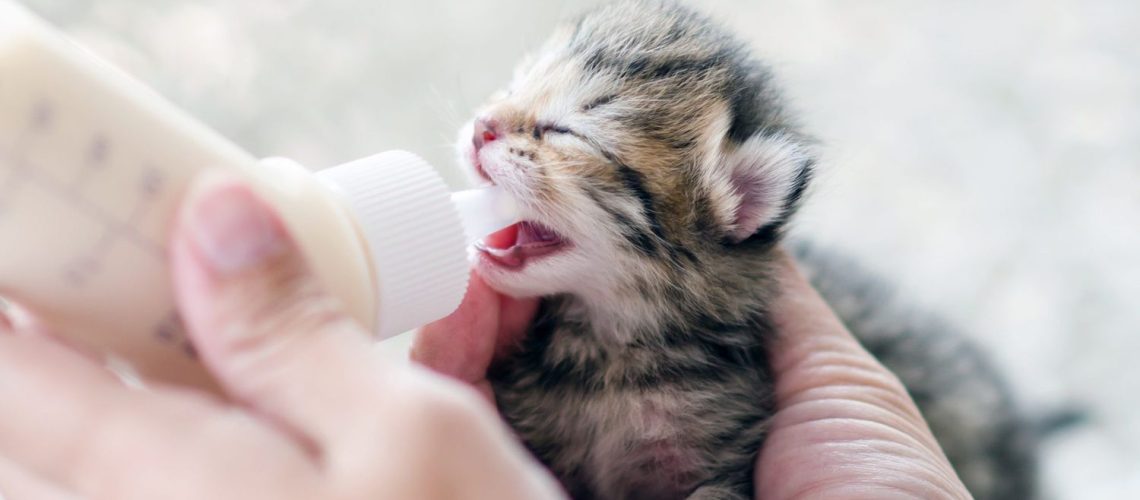Are you ready to embark on an adorable and rewarding journey? Imagine the joy of nurturing tiny, helpless creatures into strong and healthy feline companions. Raising newborn kittens is not only a heartwarming experience but also an opportunity to develop essential life skills. Understanding the ins and outs of this topic is crucial for anyone who wants to provide the best care possible for these fragile little beings.
Whether you're a future cat owner or simply fascinated by the wonders of nature, delving into the world of raising newborn kittens will open your eyes to a whole new level of compassion and responsibility. So, let's dive in together and discover the secrets to successfully raising these precious bundles of fur!
Key Takeaways:
- Provide a warm and safe environment for newborn kittens, as they are unable to regulate their body temperature.
- Feeding newborn kittens every 2-3 hours is essential, using a specialized kitten milk replacement formula if the mother is not present or unable to nurse.
- Stimulate kittens to eliminate waste by gently rubbing their genital area with a warm, damp cloth after each feeding.
- Socialize newborn kittens by handling them regularly and exposing them to different sights, sounds, and experiences to help them grow into well-adjusted adult cats.
- Consult with a veterinarian for proper vaccinations, deworming, and health check-ups to ensure the overall well-being of newborn kittens.
When can a newborn kitten be separated from its mother?
It is generally recommended to keep newborn kittens with their mother until they are at least 8 weeks old. During this time, the kittens learn important social and behavioral skills from their mother and siblings. Separating them too early can have negative effects on their development and overall health.
At around 8 weeks of age, the kittens are typically weaned off their mother's milk and are able to eat solid food on their own. They will also be more independent and better equipped to handle the transition to a new home.
Why is it important to wait until 8 weeks?
Waiting until 8 weeks allows the kittens to receive proper nutrition from their mother's milk, which contains essential antibodies that help boost their immune system. It also gives them time to develop physically and emotionally, ensuring they are ready for the challenges of living without their mother.
What if there are special circumstances?
In some cases, such as when the mother cat is unable to care for her kittens or if they have been abandoned, it may be necessary to separate them earlier. In these situations, it is crucial to provide appropriate care and seek guidance from a veterinarian or animal welfare organization.
Signs of a healthy and thriving newborn kitten
A healthy newborn kitten will exhibit certain signs that indicate it is thriving and well-cared for. These signs include:
- Bright and clear eyes: The kitten's eyes should be free from discharge or redness.
- Sleeping peacefully: A contented kitten will sleep soundly without any signs of distress or discomfort.
- Gaining weight: Healthy kittens gain weight steadily in the first few weeks of life. Regular weigh-ins can help monitor their growth.
- Active and alert: A thriving kitten will be curious, playful, and responsive to its surroundings.
What to do if a newborn kitten appears sick?
If a newborn kitten shows signs of illness, such as lethargy, loss of appetite, or difficulty breathing, it is important to seek veterinary care immediately. Newborn kittens are vulnerable and can deteriorate rapidly if not treated promptly.
Providing a warm and comfortable environment
Newborn kittens are unable to regulate their body temperature effectively, so it's essential to provide them with a warm and cozy environment. This can be achieved by using a heating pad set on low or providing a heat lamp in the area where they are kept. It's crucial to monitor the temperature carefully and ensure it remains within the appropriate range for the kittens' age.
What to feed a newborn kitten if it cannot nurse from its mother?
If a newborn kitten is unable to nurse from its mother, either due to health issues or abandonment, it is necessary to provide an appropriate substitute for mother's milk. In such cases, commercial kitten formula specifically designed for newborns should be used.
How to prepare and administer formula
To prepare the formula, follow the instructions provided on the packaging carefully. It usually involves mixing the powdered formula with warm water until it reaches the desired consistency. The formula should be warmed slightly before feeding but should not be too hot as it can burn the delicate mouth of the kitten.
Feeding should be done using a small bottle or syringe with a nipple attachment that closely resembles a mother cat's nipple. The kitten should be placed in an upright position while feeding and allowed to suckle at its own pace. It's important to be gentle and patient during the feeding process.
How often to feed a newborn kitten
Newborn kittens have very small stomachs and need to be fed frequently. They should be fed every 2-3 hours, including during the night. As they grow older, the frequency of feedings can gradually be reduced.
It's essential to monitor the kitten's weight gain and behavior to ensure it is receiving enough nourishment. If there are any concerns about the kitten's health or feeding habits, consulting a veterinarian is highly recommended.
When do newborn kittens open their eyes and how to keep them clean?
Newborn kittens are born with their eyes closed, but they typically start to open them when they are around 7-10 days old. The process of opening their eyes can take a few days, and initially, their vision may be blurry.
Keeping the eyes clean
To keep the newborn kittens' eyes clean, a soft and damp cloth or cotton ball can be used to gently wipe away any discharge that may accumulate around the eye area. It's important not to use any harsh chemicals or substances near their delicate eyes as it can cause irritation or injury.
If there is excessive discharge or signs of infection, such as redness or swelling, it is recommended to seek veterinary advice for appropriate treatment.
Introducing solid food to a newborn kitten's diet and suitable options
As newborn kittens grow older, they will gradually transition from solely consuming milk to eating solid food. This usually occurs between 4-6 weeks of age when they start showing an interest in their mother's food and begin exploring solid options on their own.
Choosing suitable solid food options
The first solid food options for newborn kittens should be easily digestible and specifically formulated for kittens. Wet or canned kitten food is often a good choice as it provides the necessary nutrients and moisture content. It can be mixed with a small amount of warm water to make it easier for the kittens to consume.
It's important to introduce solid food gradually, starting with small amounts and increasing over time. The consistency of the food can also be adjusted to match the kittens' ability to chew and swallow comfortably.
Recommended vaccinations for newborn kittens and when to give them
Vaccinations are an essential part of ensuring a newborn kitten's health and protection against various diseases. The specific vaccinations recommended may vary depending on factors such as location, lifestyle, and exposure risks.
Core vaccines
The core vaccines recommended for all kittens include:
- Feline Distemper (Panleukopenia): Protects against a highly contagious viral infection that can be fatal in young kittens.
- Feline Calicivirus: Provides immunity against a respiratory virus that causes flu-like symptoms in cats.
- Feline Herpesvirus-1: Guards against another common respiratory virus that affects cats.
- Rabies: Protects against the deadly rabies virus, which can be transmitted through bites from infected animals.
When to administer vaccinations
Kittens typically receive their first round of vaccinations at around 6-8 weeks of age. Additional booster shots are given every 3-4 weeks until they reach around 16 weeks old. After this initial series of vaccinations, annual boosters are usually recommended to maintain immunity throughout the cat's life.
It is important to consult with a veterinarian who will provide guidance on the appropriate vaccination schedule for a newborn kitten based on its individual needs and circumstances.
Recommended vaccinations for newborn kittens and when to give them
Core Vaccinations
Core vaccinations are essential for all kittens as they protect against common and potentially life-threatening diseases. The two core vaccines recommended for newborn kittens are the FVRCP vaccine and the rabies vaccine.
The FVRCP vaccine, also known as the "distemper" vaccine, protects against three highly contagious diseases: feline viral rhinotracheitis, calicivirus, and panleukopenia. These diseases can cause severe respiratory symptoms, fever, loss of appetite, and even death in kittens. It is typically given in a series of shots starting at around 6-8 weeks of age, with boosters every 3-4 weeks until the kitten reaches 16 weeks old.
The rabies vaccine is crucial not only for the health of your kitten but also for public safety. Rabies is a deadly virus that can be transmitted to humans through bites or scratches from infected animals. Kittens should receive their first rabies vaccination between 12-16 weeks of age, followed by a booster shot one year later. After that, they will need regular boosters every 1-3 years depending on local regulations.
Non-Core Vaccinations
Non-core vaccinations are recommended based on a kitten's individual risk factors such as lifestyle and geographic location. These vaccines provide additional protection against specific diseases that may not be prevalent in all areas or may only affect certain groups of cats.
One example of a non-core vaccine is the feline leukemia (FeLV) vaccine. FeLV is a contagious virus that can weaken a kitten's immune system and lead to various health problems including anemia, cancer, and infections. Kittens who spend time outdoors or live with other FeLV-positive cats are at higher risk and should receive this vaccine starting at around 8-10 weeks of age.
Another non-core vaccine is the feline immunodeficiency virus (FIV) vaccine. FIV is similar to HIV in humans and can weaken a cat's immune system, making them more susceptible to infections. This vaccine is recommended for kittens who may be at risk of exposure to FIV-positive cats, such as those living in multi-cat households with outdoor access.
Summary:
To summarize, newborn kittens should receive core vaccinations such as the FVRCP vaccine and the rabies vaccine to protect against common and potentially life-threatening diseases. Non-core vaccinations like the FeLV and FIV vaccines are recommended based on individual risk factors. It is important to consult with a veterinarian who can provide personalized recommendations for your kitten's vaccination schedule. By ensuring your kitten receives the appropriate vaccinations at the right time, you are taking proactive steps to safeguard their health and well-being.
In conclusion, raising newborn kittens requires patience, responsibility, and love. By providing them with proper care, nutrition, and socialization, we can ensure their healthy growth and happiness.
What should you not do with newborn kittens?
Veterinarians advise against handling newborn kittens while their eyes are closed, unless necessary. It is best to only check on their health and weight gain without directly touching them. The mother cat will indicate her comfort level with you interacting with her kittens.
How long do you have to wait before touching newborn kittens?
When kittens are two weeks old, their mother becomes very protective of them. It is important to not handle them too early as they are susceptible to illness. However, once they reach the age of two weeks, it is recommended to introduce them to human interaction as it is a good time for socialization.
Will a mother cat reject her kittens if you touch them?
A mother cat will not abandon kittens that have been handled by humans. To ensure this, you can sprinkle flour around the nest and leave the area for a period of time. When you return, check for paw prints in the flour.
What is the fading kitten syndrome?
Fading kitten syndrome refers to the condition where newborn kittens do not thrive and are at risk of dying prematurely, often before they are able to be weaned. The symptoms of this syndrome can vary depending on the underlying cause and may include excessive crying, low body temperature, lack of energy, isolating from littermates, weight loss, and difficulty sucking.
What do newborn kittens need to survive?
Newborn kittens need regular feeding every two to two and a half hours to provide them with a safe source of warmth and a clean environment to prevent infection.
How often do kittens eat at 1 week?
Feeding schedule: Kittens should be fed every two hours, day and night, until they reach 10 days old. After 10 days, they can be fed every three to four hours.

















